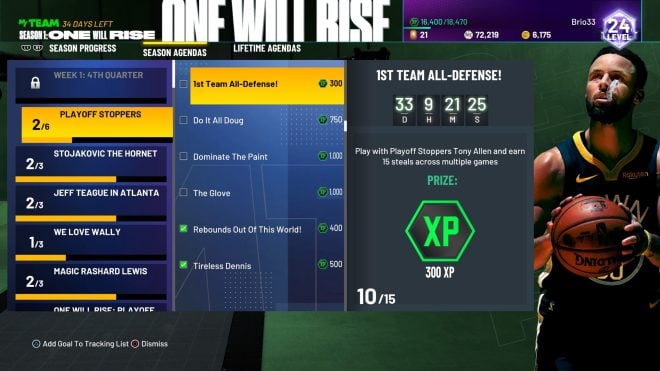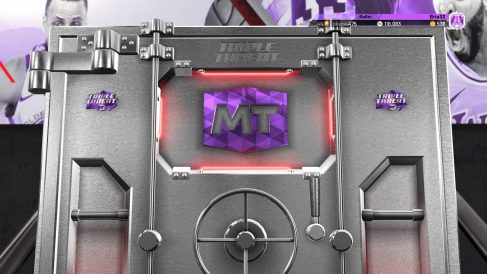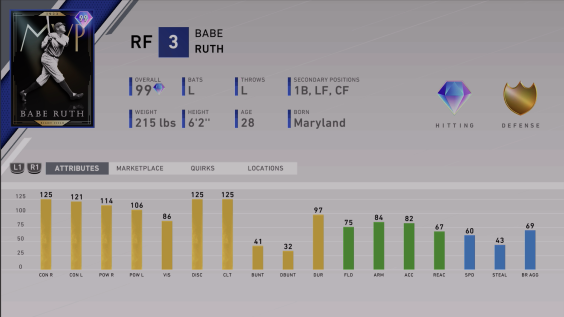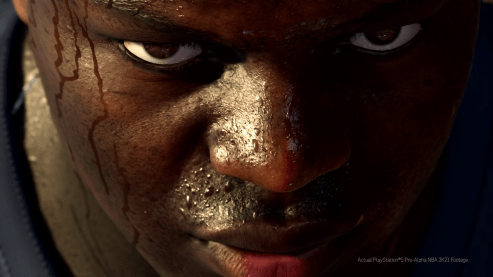I was reading a piece from Andrew over at NLSC earlier this week, and it hit on a lot of stuff I had been stewing on for a couple weeks as it relates to microtransactions in NBA 2K21. The basic premise was that a lot of the high-level issues talked about for why folks think microtransactions are problematic are valid but misunderstood in a sense, especially in the sports gaming space. Companies nowadays spend so much time saying “we’re not pay to win” or that any microtransactions will be “purely cosmetic” and that’s great. But when it comes to sports games, and especially NBA 2K21, the pay-to-win nature is not really the biggest issue to me. Instead, it’s the antagonism along the way and lack of foresight that arises from changes to the game itself. NBA 2K21 microtransactions suck — as do most microtransactions overall — but they suck for smaller reasons that just poke you over and over again until you finally want to burst.
The Issue With NBA 2K21 Microtransactions Is Not Really The Pay-To-Win Nature
So yeah, NBA 2K21 microtransactions suck for more understated reasons than the more obvious P2W aspects. In reviews, we so often read about how everything costs VC, or the grind of leveling up your MyPlayer is truncated if you buy VC. These are valid points but they’re short-term problems. Even if VC feels overpriced, it’s easy to understand a correlation between buying some VC and getting a better player. If that was where the transaction ended, you would feel like you knew why you bought the VC. You might not be stoked you had to do it, but over the years we’ve been beaten down and numbed to that component of the proceedings.
The problems start after you buy that initial VC. First off, it’s never enough. I won’t spend much time saying more than that here because these are still the “obvious” issues, but there’s always a need for more VC after that initial splurge. Whether it’s for apparel or more ratings, you don’t feel “complete” even if you buy VC at launch. The other obvious issue here is the balance of the grind itself. Are we playing a game to grind to 99 in MyCareer/MyPlayer, or are we playing to get better at the game and become a useful cog on a team online and offline? If it’s both, then why lessen the grind to 99 by asking for money for VC if it’s supposed to be part of the game design? These concepts are at odds with each other and have been for years. This makes the game design weaker, and thus, the game weaker.
If we drill down more here, the issues with being always online are where the more under-the-radar antagonism begins to emerge. There’s an old Reddit thread from 7 months ago that did a solid job outlining what’s been stripped from offline MyCareer over the years. Madden’s franchise mode got a lot of crap for being always-online years back and not improving in general in recent years, but these sort of issues go beyond things like Madden’s franchise mode. 2K has absolutely stunted the growth of offline portions of its game. So while 2K’s franchise-equivalent is still best-in-class, the same can’t be said for how offline MyCareer has been treated.
Then there’s the patches. 2K tries to re-balance the game and the meta, which is fair. However, there’s a lot of unintended consequences that come out of these patches that end up just chapping the consumers. For example, the most recent patch re-balanced things so dribbling thresholds were altered. This hurt some types of builds, and the issue is you’re locked into these builds. A logical and fair proposal would be to allow a re-spec option when thresholds are changed, as suggested by Till on Twitter.
2K could implement a "One Week Re-Spec" option for situations like this where you can adjust your current build physical features and attribute caps when they make meta changing patches like this.
— TillHouse (@TILLHOUSE_) September 28, 2020
But there is no re-spec option. So you pour hours and hours into a game mode, and then there’s a new patch and you may no longer even have the player you thought you were building anymore. Giving folks a re-spec option would probably hurt revenue streams and engagement, but it should be an obvious allowance here.
If You Don’t Buy VC, You’re Antagonized Too
Simply saying “well I just won’t buy VC” isn’t exactly always an easy option in NBA 2K either. This aspect isn’t totally 2K’s fault, but my favorite point from Andrew’s article that I mentioned previously comes up here, so I’ll include it in full:
“…a lack of in-depth matchmaking options and criteria in the Pro-Am modes, and the absence of any matchmaking system in The Playground, pressures gamers to upgrade as quickly as possible. MyPLAYER clothing has also become a status symbol, and to that end, a kind of rudimentary matchmaking system among Park enthusiasts. Premium clothes obviously have premium prices, and as I’ve noted on several occasions, force gamers to budget between upgrades and cosmetic items. You need to upgrade quickly and have the right look to stand a good chance of getting games, honing your skills, and upping your MyREP so you can keep playing.”
There is 100 percent an element of pressure that arises in the community at large. You don’t want to be the generic brown shirt player, and you don’t want to feel like the weak link online who is that 82 overall while everyone else around you is 90+ overall. There are people who are good enough to survive while being lower rated, but a lot of the time you end up with people ducking you as a teammate or berating you for being trash.
Online games are cruel in that way, but 2K doesn’t make it easy to find a smoother path to a higher overall unless you grind a much more boring offline experience or purchase some VC. With some better matchmaking or other design elements that could lessen that burden, the VC wouldn’t feel so intrusive. But VC seems to be part of the game design, and thus you’re pushed towards it in a way that makes a $60 game feel like it’s designed like a free-to-play game.
NBA 2K Is Also Wholly Unique In This Way
No other sports game has so much money tied up in the MyPlayer component of things as 2K. In FIFA and NHL, your online persona is driven by your on-field exploits and there’s no real clean way to simply buy your way through the grind. In NBA 2K, it’s not like you can buy your way to the top either, but it certainly makes the journey to the summit easier. 2K could immediately change all that by locking people into builds or archetypes like FIFA/NHL. Even the 2K League itself has limits on things for competitive reasons, so 2K has a path here if the company wanted to take it.
Again, though, that would cut into profits I imagine. So, instead, we have this unbalanced part of the game that goes through patches and hot fixes, and we never really settle into a spot where most of the community is content. That’s a choice all on its own, but it’s one that is strictly bad for the consumer in an effort to not cut into the company’s bottom line.
The Problem Goes Beyond NBA 2K — And, Yes, Loot Boxes Are Part Of The Problem
I don’t want to just pick on NBA 2K either because, outside of 2K’s unique MyPlayer problem, most other sports games then start to have similar issues. Returning to more obvious issues, when it comes to MyTeam/Ultimate Team, every game has a lot of the same gross loot-box practices. FIFA and 2K are the most blatant about having packs you can only purchase with real money. Madden has this issue as well, but I would say it’s not quite as egregious. NHL mostly backed off this practice last year and allowed people to get a lot of the best cards in one form or fashion while not spending money, but the grinds to do so were usually insane.
Beyond the unfairness of only being able to buy certain packs with real money, odds on a lot of these packs are unjust or misleading. All of the packs come with odds on them now, but even those odds can be hard to comprehend. 2K, for example, might say there is a 5 percent chance you’ll pull a pink diamond, but you’ll pull the same pink diamond over and over rather than the really good pink diamond everyone actually is hunting for in these packs. It’s maybe not false advertising, but it certainly still feels rigged.
And there’s nothing 2K and EA hate more than when players find some exploit to farm currency. Now, I know certain exploits have to be patched because fake currency is sold illegally by third parties and there’s a whole other can of worms here with that component that I won’t get into. But what upsets consumers is not just that the exploits are usually quickly patched, it’s that the response to these exploits so far outweighs the response times to other problems that people can complain about for weeks and not hear updates.
The fact 2k patched the blacktop vc grinding method before patching the missing daily bonuses just prove how scummy they really are
by inNBA2k
In other words, we can beg and beg sometimes for some small issue to be fixed (such as the daily bonuses example above), and yet some currency exploit will be fixed the same day. It sends the message that fixes are possible, but we’re only going to immediately be on top of them if they impact us — not you. That sort of thing is emblematic of what I’m talking about here and why it can feel like you’re just being told to “stop hitting yourself” over and over.
There Are Less Sinister Players Here Too
But look, I don’t think everything is bad here all the time. There is a world where microtransactions can coincide with sports games, it’s just not usually done so with enough care. First off, yes, I’m okay with cosmetics costing money. NHL does a lot of this, and it’s fine. If you want to wear a goofy hat and pay $10, then go for it. Is it weird on some level for that to exist in a full-priced game? Yes, but it’s not new and I also don’t think it’s something I’m simply numb to either. It’s just not actively harmful.
When it comes to card-collecting modes, SDS is the lowest on the totem pole here in terms of how much they try to exploit customers. Obviously, SDS would love if you paid extra money for stubs and packs, but it’s the cleanest, fairest grind out there when it comes to a card-collecting mode — and it’s not particularly close. You are offered tons of free quality cards, the grinds to new players are fair, a very limited number of cards feel out of reach, and the super skilled people out there will be able to get the cards that are locked behind a 12-0 Battle Royale wall. On top of that, it’s the easiest game to “work the market” and gain the currency needed to buy cards, so even if you’re not the most skilled, you can get a lot of the best players by being savvy elsewhere.
Beyond the card-collecting modes, again, EA does a good job with NHL and FIFA in terms of not falling into the trap of giving folks ways to boost their individual players. There is a much bigger focus on balance than there is on buying your way to a higher overall rating.
Time To Re-Focus For Next Gen
I don’t have high hopes for a lot of these things changing when next-gen games roll around in November. That being said, generation changes can be a time for smart transitions. I’m not out here saying microtransactions can’t or should not exist in any form. What I’m talking about here is focusing more on not whipping pebbles at shins and tripping your consumers in the hallways.













Published: Oct 1, 2020 07:07 pm